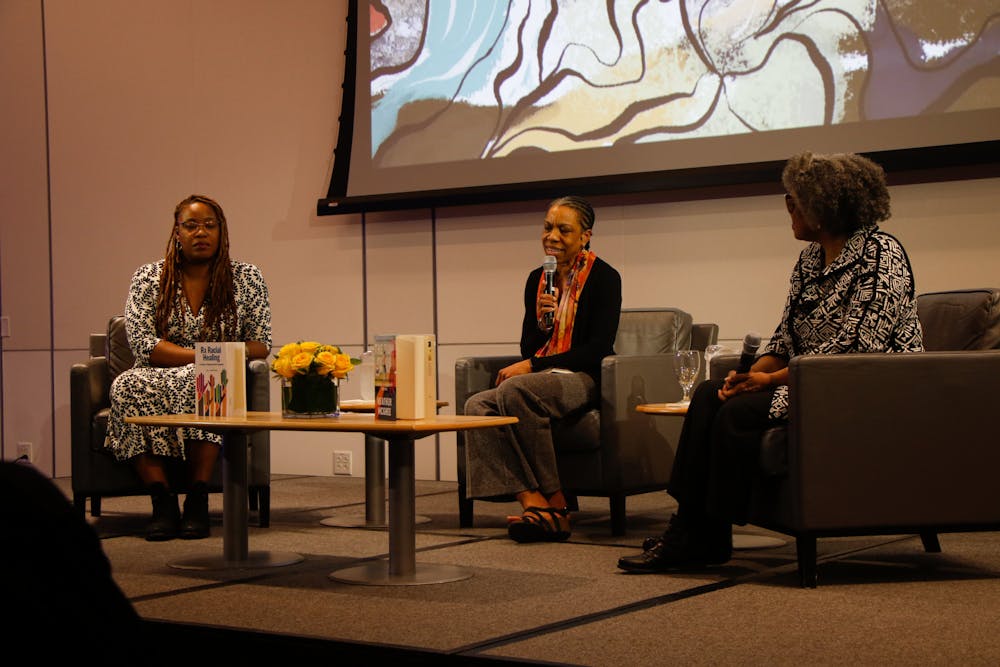“When I got an email and I saw there were three Black women talking to a room, I said I’m in there,” one audience member remarked, speaking into the microphone during the Q&A period of the event.
They weren’t alone.
The Duke Center for Truth, Racial Healing & Transformation hosted a talk titled, "Racial Healing, Hope, and 'The Solidarity Dividend,'" on Dec. 8 that featured three prominent Black women speaking to a packed Penn Pavilion audience. Charmaine Royal, the director of the Center and Robert O. Keohane professor of African & African American Studies, biology, global health and family medicine & community health was in conversation with mother-daughter duo Gail Christopher, executive director of the National Collaborative for Health Equity, and Heather McGhee, New York Times best selling author of “The Sum of Us.”
In a two-hour event, the audience experienced a live jazz music performance by the John Brown Music Group, a conversation between Christopher, McGhee and Royal on healing from a racially fraught past to build a more truthful present, and a Q&A session.
Recounting her recent conversation on former first lady Michelle Obama’s book tour, McGhee remembers Obama saying, “Empathy connects us as human beings.”
This began the conversation on empathy as a mechanism to combat racism.
“A lot of us who do this work — to strive for social justice and racial justice — we’ve had a personal experience that catapults us into it,” Christopher said.
For her, it was the death of her first born child: “I didn’t know that infant mortality was a Black thing.” This experience propelled her into an understanding of health disparities, Christopher said.
McGhee added that the lack of females and people of color in spaces of financial power contributes to income inequality stereotypes.
One way to access this is through reparations. “There is something missing in the logic of reparations as it is commonly understood that says this is for the benefit of all of us,” McGhee said. “I really see reparations as seed capital for the nation we’re becoming.”
Royal asked about their roles as female leaders of color and how they have impacted each other.
McGhee, a former president of Demos, a racial justice movement-oriented think tank, who succeeded two white men, had to “be asked five times to say yes,” when she was offered the position. In describing her eventual comfort as a woman of color in the powerful position, she again quoted Obama: “[Get] yourself out of other people’s mirrors.”
To claim her own reflection she “had to stop thinking about what I looked like,” she said.
Similarly, Christopher recounted a time when her words were ignored in a group of predominantly white individuals but were celebrated when repeated by a white person. Finally growing impatient, she said, “Excuse me, is there an echo in this room?” They did not disrespect her again, she recalled.
The end of the event focused on the necessity of racial healing. “Love and fear can’t occupy the same space at the same time,” McGhee said.
In this journey to racial healing, Christopher reminded the audience of their inalienable power.
“I am connected to the ultimate power of the universe. And in that knowing, I have all the power I need. Because the ultimate power of the universe is love,” Christopher said. “And I know that may sound naive to some people, but I tell any leader I know, ‘No one has access to any more power than you do.’”
Get The Chronicle straight to your inbox
Signup for our weekly newsletter. Cancel at any time.

Jothi Gupta is a Trinity junior and an enterprise editor of The Chronicle's 120th volume.

